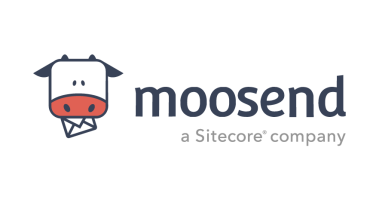
The art of communication has long been a valuable skill for any marketer to master. But exactly when and how businesses communicate with their customers is getting considerably smarter. Jamal Miller, senior director of product marketing at Intuit Mailchimp, argues that email marketing automation can be a critical competitive differentiation strategy for businesses of all sizes.
A commissioned survey by Forrester Consulting on behalf of Intuit Mailchimp in March 2023 found that 67% of marketers at small and medium-sized businesses believe increasing automation will help them to attract and retain customers. Miller’s case is compelling.
How does advanced automation make email marketing more efficient and personalised?
From the data we’ve gathered at Mailchimp, we know that users who leverage automation and predictive segments to power their email marketing are seeing up to 141%* more revenue with AI-built segments than people who are using basic email segmentation and email tools. For ecommerce customers, this can mean more clicks and more revenue. There’s a real impact on business.
We also know that it makes marketers more efficient, enabling them to engage with users at the time of need rather than relying on blanket communications. You’re saving yourself time by setting up these always-running campaigns in the background that allow you, as the marketer or the small business owner, to spend your time thinking about more strategic brand-building opportunities.
What common misconceptions do businesses have about automated emails and how can these be addressed?
One is that email marketing automation is going to take a lot of time to set up. In reality, there are lots of tools available that allow businesses to work relatively quickly. Businesses can find automation templates that map out the most common journeys that customers make, AI tools to generate content and segments that can be predicted based on previous customer behaviour. Automations use data science models to set up the triggers for what comes next.
The other misconception is around return on investment. An automation programme won’t produce the immediate sales impact that you might see if you sent a batch email message to thousands of people. Automation is all about creating engagement all the time with individuals. It’s based on interaction and individual behaviour. It takes time to accumulate results. There needs to be an element of patience.
There needs to be an element of patience
Which kinds of businesses are using these techniques well?
Some streaming services are doing a fantastic job of using automation. I’d also say subscription-based businesses that understand the customer journey to a tee. They know when their renewal cadences are, they understand the extent to which customers are getting value out of a service, and they can use that data to ensure that they continue to get that value. When it’s time to renew, all that value has accumulated and can be reflected back to the customer.
A great example for me personally is a streaming music service, where I get a monthly update of all my streaming behaviour. That includes the artists I’ve listened to most in the month and how often I’ve been listening. It drives loyalty because it feels very personal and relevant; it’s using my personal data in a way that’s helpful.
What potential pitfalls may businesses face when implementing automated email strategies?
The first challenge is often the data itself and ensuring the business has the right data inputs to drive an automation strategy. Before setting a plan of action, marketers should audit all the data available to the business and ensure that everything is connected to the right tools.
This could be an online store or an event platform, wherever the company collects behavioural and transactional data from its customers. Marketers need to ensure they understand where that data lives and that it can be connected to the automation platform. From there, plugging the ecommerce store into a marketing automation platform is a straightforward integration marketers can set up themselves.
Which sectors can benefit the most from an automated email strategy?
Retail and ecommerce – that’s a given. There are so many data points that are collected across the customer journey, whether it’s an abandoned cart, a view of a product page or a customer review. Daily, we see how revenue can grow for these types of businesses once automation is in place.
I’d also add any industry where there is a long nurture period to that. B2B sales processes tend to involve an extended back-and-forth before you get to the point of purchase. Automations tend to fit nicely with these longer conversations. You can continue engaging these customers with content such as e-books, webinars, and other materials while also conducting sales conversations with them.
Discover how Mailchimp can help you get your email marketing strategy right
* 141% more revenue for users’ connected stores using predictive segmented emails versus non-predictive segmented emails for Jan 1 2022 – Jul 1 2023 period. Standard and Premium plans only.

The art of communication has long been a valuable skill for any marketer to master. But exactly when and how businesses communicate with their customers is getting considerably smarter. Jamal Miller, senior director of product marketing at Intuit Mailchimp, argues that email marketing automation can be a critical competitive differentiation strategy for businesses of all sizes.
A commissioned survey by Forrester Consulting on behalf of Intuit Mailchimp in March 2023 found that 67% of marketers at small and medium-sized businesses believe increasing automation will help them to attract and retain customers. Miller’s case is compelling.
There needs to be an element of patience






